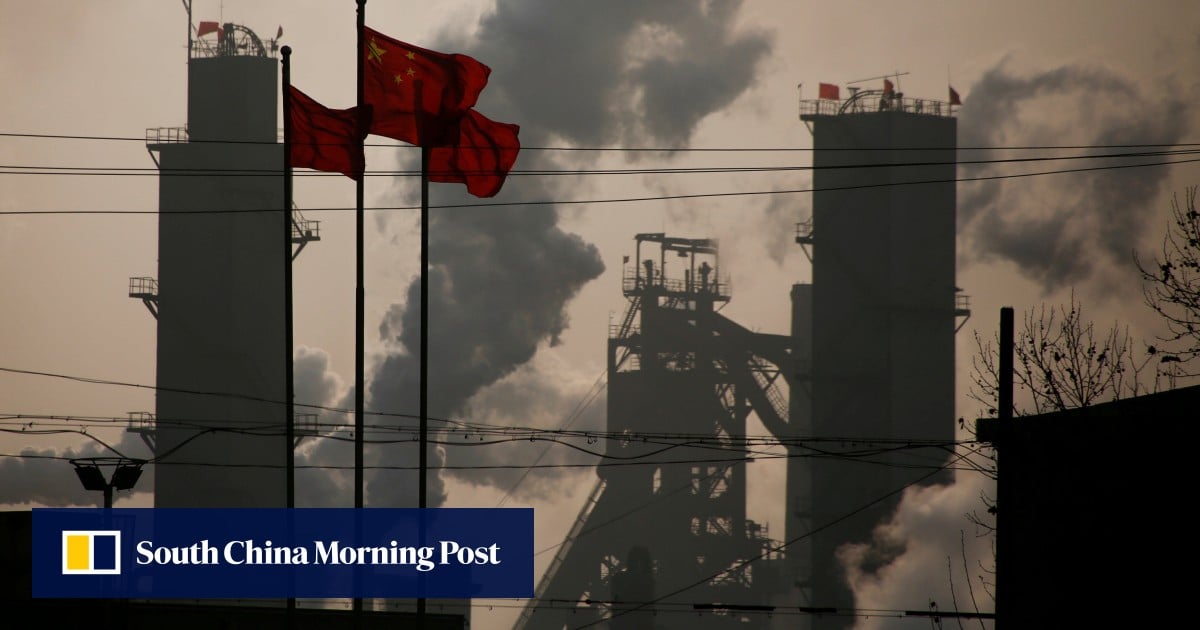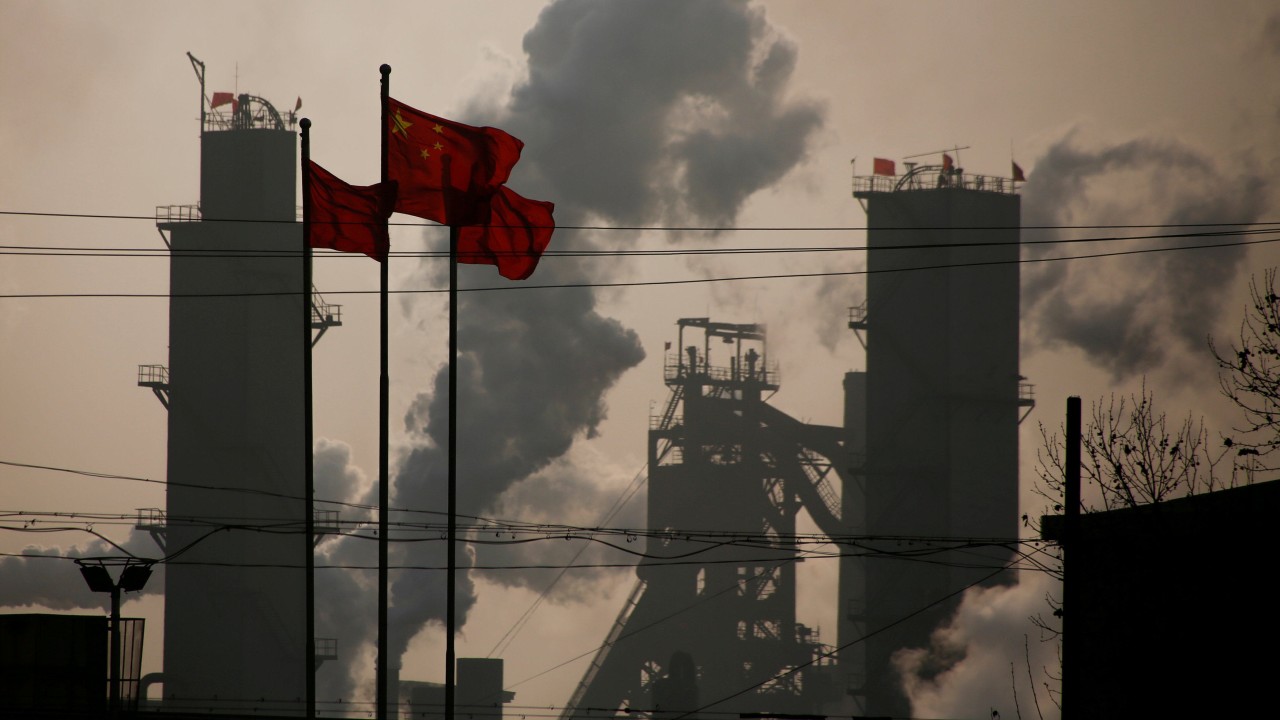
04 Apr China’s climate goals: action plan calling for renewal of equipment can also boost green transition, experts say

In an action plan released last month, the State Council, China’s cabinet, called for the promotion of “a new round of large-scale equipment renewals and trade-ins of consumer goods” to propel the “high-quality” development of its economy and to boost investment and consumption.
Heavy industries such as iron and steel, cement and petrochemicals need to upgrade and replace their equipment with more energy-efficient and lower-emitting alternatives, according to the State Council. Other sectors that have been ordered to renew large-scale equipment include construction and urban infrastructure, transport and agriculture, education and healthcare.
The action plan also highlights trade-ins of big-ticket consumer goods such as cars, home appliances and furniture. By 2027, China aims to double the recycling volume of scrapped cars from 2023 levels, while achieving 45 per cent growth in the trading volume of second-hand cars and 30 per cent growth in the recycling volume of used home appliances.
“The campaign is primarily about boosting the economy,” said Yao Zhe, a Beijing-based global policy analyst at Greenpeace East Asia. “But it has the potential to create successful green stimulus.
“The policy communicates a clear intention to expand the market for energy-efficient products. That is plausible. By incentivising both industrial and residential consumers to upgrade and retrofit, it can lead to energy efficiency improvements that are essential for decarbonisation.”
Transition finance seen as a crucial tool in the fight against climate change
Transition finance seen as a crucial tool in the fight against climate change
The action plan highlights “new-energy vehicles” and “energy-saving home appliances” in its requirements for product trade-ins, as well as “emissions reduction upgrades” for equipment in different industries.
It also calls for improving the recycling network for retired equipment and products with the set up of more sorting and processing facilities, standardisation of trade in second-hand electronics and the development of businesses in the remanufacturing of high-end equipment such as wind turbines, solar panels and electric vehicle (EV) batteries.
For the country’s second-hand retailers and firms in the recycling business, the action plan represents a great opportunity to boost China’s circular economy.
Green finance: surge of climate-transition guidance to promote decarbonisation
Green finance: surge of climate-transition guidance to promote decarbonisation
“If a product stays idle rather than being reused or recycled, its economic value and recycling value decline and it will end up as waste,” said Jeremy Ji, chief strategy officer at ATRenew, the operator of China’s largest trading platform for pre-owned electronics.
The NYSE-listed company saw its annual revenue increase by 31.4 per cent year on year to 12.97 billion yuan (US$1.79 billion) in 2023, according to ATRenew’s earnings report released last month. The platform recycled more than 32.3 million electronic devices last year, a slight increase from the 32 million pieces recycled in 2022.
“It shows that the circular economy concept, as well as second-hand trading and recycling are in line with the current consumer trends in China,” Ji said.
Can microscopic plants help fix the climate? Hong Kong start-ups think so
Can microscopic plants help fix the climate? Hong Kong start-ups think so
According to the State Council, the upgrades will receive support from the central budget, as well as tax incentives and bank loans, while manufacturers and retailers are also expected to launch sales promotions and offer subsidies to boost trade-ins and renewals.
Local governments have been quick to follow suit. Last week, the Shanghai government said it will provide 150 million yuan in subsidies for consumers who trade in home appliances between March 30 and December 31 this year. Chinese home appliances retailer Suning.com launched a sales campaign in partnership with more than 30 manufacturers across the country last month in response to the central government’s call.
Ji said the prices of recycled goods will rise further and attract more people to the circular economy.
Countries must deliver on climate agreements they have signed: Johan Rockstrom
Countries must deliver on climate agreements they have signed: Johan Rockstrom
China, the world’s largest greenhouse gases emitter, considers developing a circular economy between 2021 and next year one of its top priorities.
EVs and battery recycling could also see rapid growth in the coming years, as the country seeks to accelerate the replacement of fossil fuel vehicles with cleaner ones, according to brokerage firm Orient Securities.
The current action plan still lacks the necessary details to make sure its implementation will not be reduced to mere sales incentives, said Yao from Greenpeace.
“More clearly defined criteria for when equipment upgrading and infrastructure retrofitting can be supported are necessary, especially for industrial users.
“Clear criteria can ensure the policy’s green vision doesn’t falter during implementation.”
